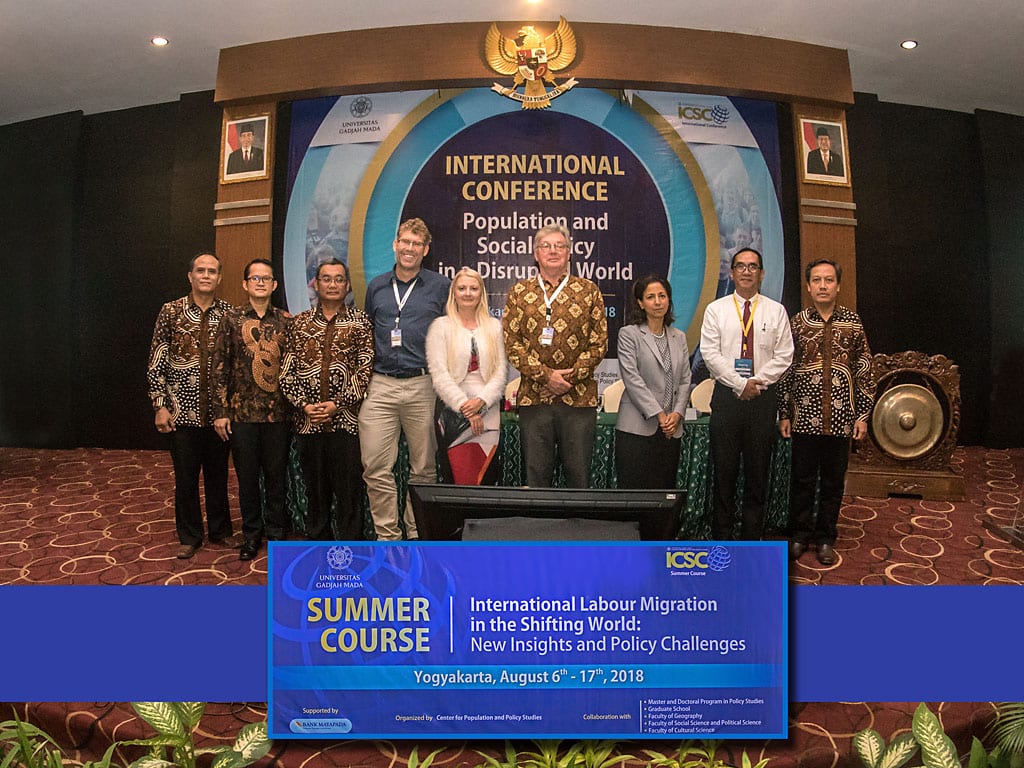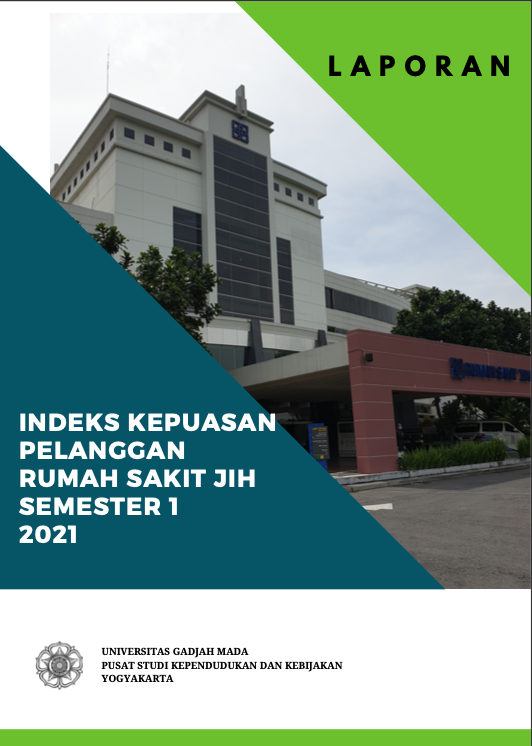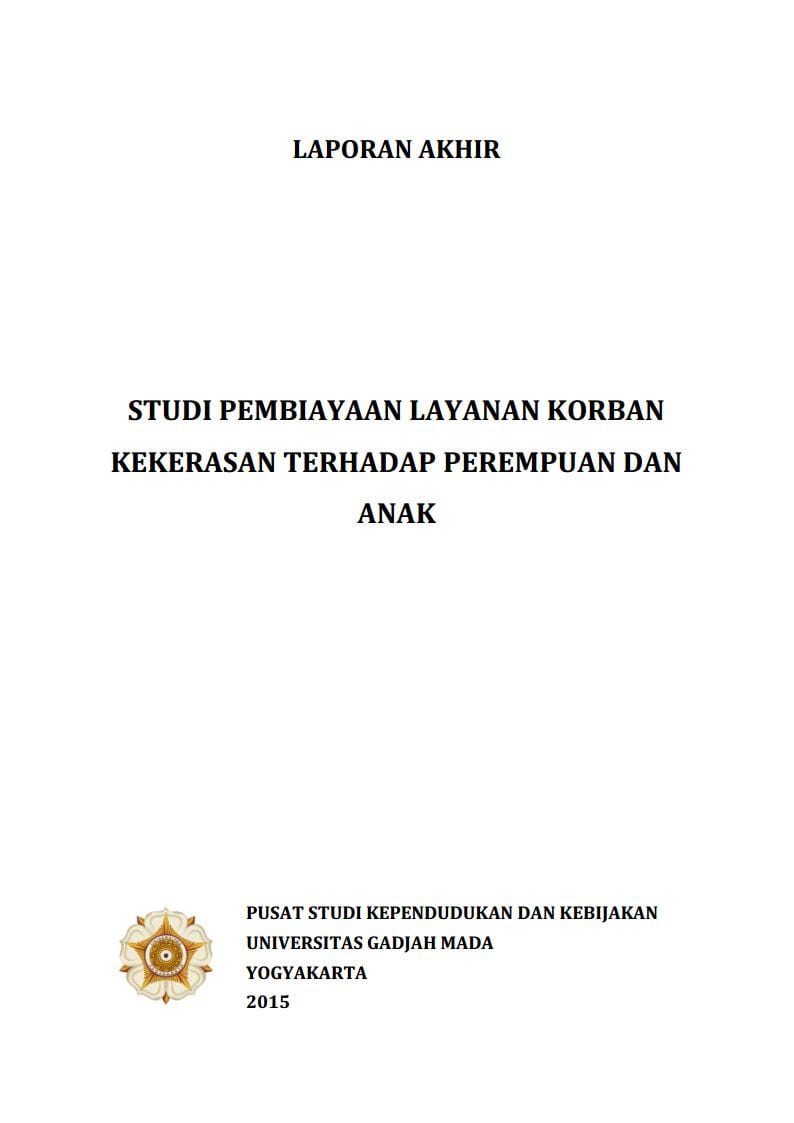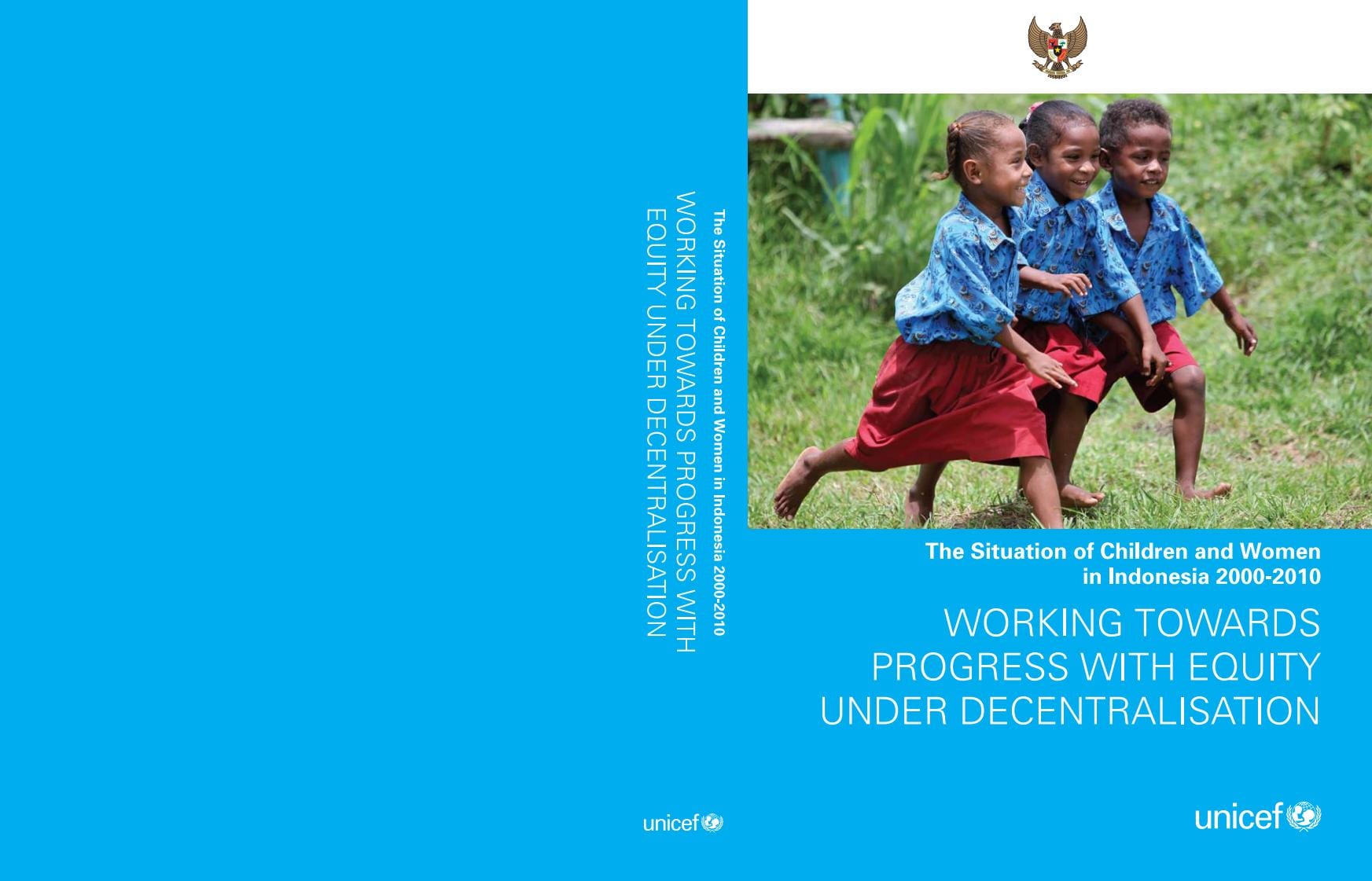ICSC UGM 2018: Population and Social Policy in a Disrupted World
|Conference, Events, Main Slide, Media, Press Release

INTERNATIONAL CONFERENCE & SUMMER COURSE 2018
“POPULATION AND SOCIAL POLICY IN A DISRUPTED WORLD”
Cooperation with Center for Population and Policy Studies (CPPS) Universitas Gadjah Mada, Master and Doctoral Program of Policy Study (MDSK) Universitas Gadjah Mada, and PT. Bank Mayapada Internasional, Tbk.
Yogyakarta, PSKK UGM – Universitas Gadjah Mada (UGM) proudly holds International Conference “Population and Social Policy in a Disrupted World” and series of Summer Course “International Labour Migration in the Shifting World: New Insights and Policy Challenges” activity.
The implementation of the activity departs from three problematic matters accompanying world change. First, the incompleteness of epidemiological transition in rapidly developing countries such as countries in Asia, Africa, and Latin America. The epidemiological transition begins from complex changing in health status and the main pattern of disease causing death, where there is a decrease in the prevalence of communicable diseases, while degenerative diseases tend to be catastrophic, such as heart disease, stroke, high blood pressure, cancer, diabetes, are increasing.
Changing of lifestyle, increasing of consumption of fast food highly containing cholesterol, salt, sugar, but low in fiber; and low physical activity such as exercise cause people vulnerable to degenerative diseases. Lately, many teenagers suffer from degenerative diseases. If it is not well handled, it will affect the quality of the young population. Handling such problem draws most of the financial and technical resources belong to the government.
Second, issues and problems of complex voluntary and forced international labor migration. Voluntary or forced international migrant workers become a group which is vulnerable to human right violation and they become a trading “commodity”. This has been going on for a long time and demanding a commensurate policy to avoid hardship suffered by international migrant workers. In general context of international migration, trends in some countries implementing “anti-migrant” policy also emerge a separated problem. This mainly refers to migration policies applied by the United States and some countries in Europe. An important question in this context is; where is the role of the states, in both sending and receiving countries? Addition to that, technological progress should provide opportunities for the government to develop protection policies for international migrant workers.
Third, the lack of social protection aimed to minimise population problems previously explained. The increasing number of elderly people, for example, needs to be accompanied by adequate health services for the elderly and a better and comprehensive policy scheme. All formal and informal workers, local or international migrants, should also have a social protection scheme which protects them from illnesses and accidents at work. Moreover, the problem of poverty as an unfinished agenda demands rethinking of all applied policies.
The three issues above are getting complex after major changes occur, those are marked by developments of information and globalization technology, which cause a very fast change or “disrupted world”. Almost every line of our lives, both in private and public spheres, changes to be digital, online, connected to each other. Not only is it without problems, in industrial relations for example, the existence of an all-digital system actually also contributes serious employment issues.
The conference taking place at University Club Hotel, Universitas Gadjah Mada, Yogyakarta is able to generate various critical questions on the issues. The conference presents resource persons whose reputations in their fields, they are Dr. Lothar Smith (Human Geography, Institute for Management Research, Radboud University Nijmegen, the Netherlands), Prof. Dr. Ben White (International Institute of Social Studies, Erasmus University Rotterdam, the Netherlands), Prof. Maria Fasli, Ph.D., NTF, FHEA (UNESCO Chair of Analytics and Data Science), and Prof. Rebecca Surender, Ph.D., (Department of Social Policy, Oxford University, the United Kingdom). Minister of National Development Planning/National Development Planning Agency (BAPPENAS), Prof. Dr. Bambang P.S. Brodjonegoro is scheduled to attend, at last he will be represented by Director for Planning, Population and Social Security of BAPPENAS, Maliki, ST, MSIE, Ph.D., to deliver keynote speech.
Summer Course
The activity series of Summer Course activities taking the title: “International Labour Migration in the Shifting World: New Insights and Policy Challenges” will be carried out for ten days, from 7 to 17 August 2018. This activity combines discussion activities in class, study field, report writing, and presentation sessions.
The Summer Course will be participated by 35 participants from Indonesia and overseas. Foreign participants are coming from Thailand, Singapore, Malaysia, India, New Zealand, Australia, Taiwan, Syria and the Philippines. In the field activities, participants of the summer course will make visits to three Villages of Migrant Workers (Desbumi) in Wonosobo District, those are Kuripan Village, Rogojati Village, and Lipursari Village. The only goal is the participants of the summer course will be able to recognize one of local initiatives with all problems and challenges. []
*Open this link to download the press release (pdf version):




